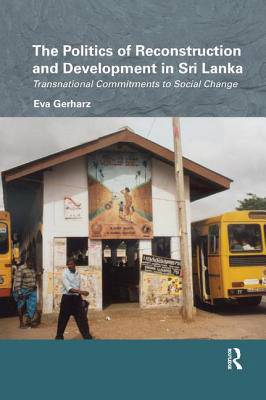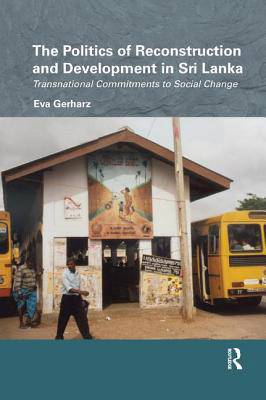
- Afhalen na 1 uur in een winkel met voorraad
- Gratis thuislevering in België vanaf € 30
- Ruim aanbod met 7 miljoen producten
- Afhalen na 1 uur in een winkel met voorraad
- Gratis thuislevering in België vanaf € 30
- Ruim aanbod met 7 miljoen producten
The Politics of Reconstruction and Development in Sri Lanka
Transnational Commitments to Social Change
Eva GerharzOmschrijving
This book presents a comprehensive insight into the politics of reconstruction and development in Sri Lanka, focussing on the ceasefire which was negotiated between the Government of Sri Lanka and the separatist Liberation Tigers of Tamil Eelam in 2002 and which lasted until 2006. It explains how development was shaped by interplay and cooperation, but also by the disparities and conflicts between a variety of local and intervening actors, including local organizations and civil society, LTTE, Government of Sri Lanka, international development cooperation and the Tamil diaspora. Starting from an interdisciplinary viewpoint, the author integrates findings from development sociology with new perspectives on transnationalization and the migration-development-nexus.
Specificaties
Betrokkenen
- Auteur(s):
- Uitgeverij:
Inhoud
- Aantal bladzijden:
- 200
- Taal:
- Engels
- Reeks:
Eigenschappen
- Productcode (EAN):
- 9780815373971
- Verschijningsdatum:
- 26/10/2017
- Uitvoering:
- Paperback
- Formaat:
- Trade paperback (VS)
- Afmetingen:
- 156 mm x 234 mm
- Gewicht:
- 290 g

Alleen bij Standaard Boekhandel
Beoordelingen
We publiceren alleen reviews die voldoen aan de voorwaarden voor reviews. Bekijk onze voorwaarden voor reviews.











